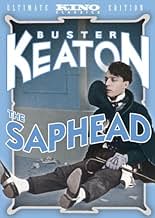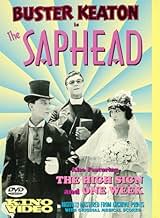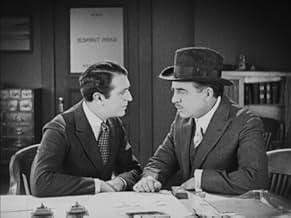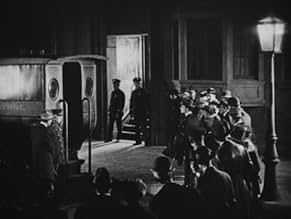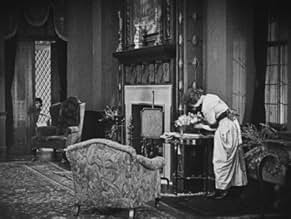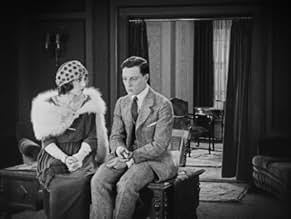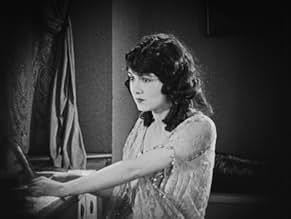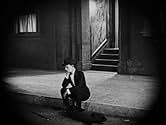VALUTAZIONE IMDb
6,1/10
1865
LA TUA VALUTAZIONE
Aggiungi una trama nella tua linguaThe simple-minded son of a rich financier must find his own way in the world.The simple-minded son of a rich financier must find his own way in the world.The simple-minded son of a rich financier must find his own way in the world.
- Regia
- Sceneggiatura
- Star
- Premi
- 1 candidatura in totale
Katherine Albert
- Hattie
- (non citato nei titoli originali)
George Berrell
- Jim Hardy from Arizona
- (non citato nei titoli originali)
Henry Clauss
- Valet
- (non citato nei titoli originali)
Alfred Hollingsworth
- Hathaway
- (non citato nei titoli originali)
Helen Holte
- Henrietta Reynolds
- (non citato nei titoli originali)
Jeffrey Williams
- Hutchins
- (non citato nei titoli originali)
Recensioni in evidenza
Keaton plays a character that is somewhat bewildered by life-he meets the wrong train, he asks permission to quit winning at gambling, he is even inept in getting arrested. All is done with his deadpan expression and his intense eyes. This combination of innocence adrift in a life of circumstances provides Keaton with ample humorous moments. At times, I found the comedy to be somewhat muted; yet the pacing was well done and the stock market scenes are thoroughly delightful. `The Saphead' is not on a par with `The General', Sherlock, Jr.', or `Seven Chances', but the film has its share of riches for the viewer.
"Saphead" is an awful romantic melodrama. Basically Keaton is just doing straight acting (the movie's based on a stage play). There is little comedy here.
But the 2 shorts included on the DVD -- "The High Sign" and "One Week" --are outstanding. They rate 8 and 9 scores, respectively. "One Week" anticipates many of Keaton's later gags and stunts, showing the kind of imagination and skill that made his films the funniest of the silent era (sorry, Charlie).
But the 2 shorts included on the DVD -- "The High Sign" and "One Week" --are outstanding. They rate 8 and 9 scores, respectively. "One Week" anticipates many of Keaton's later gags and stunts, showing the kind of imagination and skill that made his films the funniest of the silent era (sorry, Charlie).
Something like The Saphead isn't what you would expect to be Buster Keaton's feature film debut. The whole thing seems too ordinary, too stagey and melodramatic to be so. This is due to the fact that The Saphead was not a Keaton-helmed project; he was suggested for the role of the rich young man Bertie by Douglas Fairbanks, who had previously played the role on Broadway.
Bertie is the first of the spoiled, clueless young man types that Keaton would later return to in The Navigator and Battling Butler. He seeks to impress a sweet young woman named Agnes by coming across as a bad boy, gambling well into the morning hours and having breakfast in the afternoon. His father confronts him about this behavior and has him cut off until he can find a job. Bertie seeks out to do just that, in the meantime winning the hand of his girl-- well, almost. During the ceremony, his sister's slimy husband Mark receives letters from his recently deceased mistress Henrietta, asking him to take care of their illegitimate child. His secret about to be revealed, he presses the letters on Bertie, breaking Agnes' heart and bringing the union to an abrupt end. Fortunately, things manage to pick back up after Bertie unwittingly saves the family stock business.
While there are a few Keaton-esque moments every now and then, for the most part The Saphead is just a typical stage to film adaptation of the period. Unlike the films Keaton would later star in and direct, this picture lacks spontaneity and laughs. The action on screen never comes alive until the climax, when Keaton finally gets to jump and be thrown around as he dashes through the trading floor and saves the day. The entire movie isn't a bore, however, and there are a few humorous inter-titles and gags, but it's just doesn't have a story that seems to suit the particular talents of its main star.
Bertie is the first of the spoiled, clueless young man types that Keaton would later return to in The Navigator and Battling Butler. He seeks to impress a sweet young woman named Agnes by coming across as a bad boy, gambling well into the morning hours and having breakfast in the afternoon. His father confronts him about this behavior and has him cut off until he can find a job. Bertie seeks out to do just that, in the meantime winning the hand of his girl-- well, almost. During the ceremony, his sister's slimy husband Mark receives letters from his recently deceased mistress Henrietta, asking him to take care of their illegitimate child. His secret about to be revealed, he presses the letters on Bertie, breaking Agnes' heart and bringing the union to an abrupt end. Fortunately, things manage to pick back up after Bertie unwittingly saves the family stock business.
While there are a few Keaton-esque moments every now and then, for the most part The Saphead is just a typical stage to film adaptation of the period. Unlike the films Keaton would later star in and direct, this picture lacks spontaneity and laughs. The action on screen never comes alive until the climax, when Keaton finally gets to jump and be thrown around as he dashes through the trading floor and saves the day. The entire movie isn't a bore, however, and there are a few humorous inter-titles and gags, but it's just doesn't have a story that seems to suit the particular talents of its main star.
While it is certainly not up to the standard of the later films that Keaton would direct and/or write himself, "The Saphead" is still a nice little film, and the last part is excellent, a sign of things to come. It would be worth watching for the last 20 minutes alone, and the first part is not bad either, just old-fashioned and sometimes a bit slow.
Keaton plays Bertie, the timid son of a rich businessman. Most of the film involves the business and romantic difficulties of Bertie, his sister, and his brother-in-law. It's slow at times, with some melodrama and a fair amount of mild humor but not a lot of really funny material. It's a decent story of the kind common to silent films, is usually pleasant to watch, and is important as the prelude and setup to the climax. In the last part of the film, Bertie joins the stock exchange, and all the story lines come together in a creative and very entertaining sequence that finally gives Keaton a chance to display his great variety of comic skills.
If you enjoy Keaton's other films, this one is not up to their level, but it is still worth watching.
Keaton plays Bertie, the timid son of a rich businessman. Most of the film involves the business and romantic difficulties of Bertie, his sister, and his brother-in-law. It's slow at times, with some melodrama and a fair amount of mild humor but not a lot of really funny material. It's a decent story of the kind common to silent films, is usually pleasant to watch, and is important as the prelude and setup to the climax. In the last part of the film, Bertie joins the stock exchange, and all the story lines come together in a creative and very entertaining sequence that finally gives Keaton a chance to display his great variety of comic skills.
If you enjoy Keaton's other films, this one is not up to their level, but it is still worth watching.
The problem with this film is that it not a slapstick comedy and was never intended to be one, so if you are going to watch it forget about Buster Keaton, the comedian and look at Buster Keaton, the actor. Keaton is a revelation in this film, his performance is restrained and excellent proving that he was an actor as well as a comedian, a fact that makes his middle years even more sadder, truly a talent wasted by the studio system of the 30's. I'd like to add that Keaton had no problems adjusting to talkies, as commonly assumed, he had a fine speaking voice and could deliver a comic line perfectly, the problem lay with him losing control of his productions and being given poor quality material to work with, he never lost his talent as widely believed. All the performances in this little gem of a movie are first class especially Irving Cummings and William H Crane as well as Keaton's. This is a nice way to spend an hour, but, the final twenty minutes are the best as it is plain to see Keaton's contribution in the scenes in the Stock Exchange as Bertie runs around manically saying "I take it", but, not really knowing why. For many people, their only experience of silent movies is slapstick comedy, so I would say broaden your horizons and start with this one.
Lo sapevi?
- QuizFeature-film debut of Buster Keaton.
- BlooperWhen Bertie's car pulls up to the house after the aborted wedding, the front gate is closed, but when he gets out of the car it is wide open.
- Versioni alternativeIn 1995, Film Preservation Associates copyrighted a version with an orchestral score; no details were specified on the print.
- ConnessioniFeatured in Buster Keaton: A Hard Act to Follow (1987)
I più visti
Accedi per valutare e creare un elenco di titoli salvati per ottenere consigli personalizzati
- How long is The Saphead?Powered by Alexa
Dettagli
- Tempo di esecuzione1 ora 17 minuti
- Mix di suoni
- Proporzioni
- 1.33 : 1
Contribuisci a questa pagina
Suggerisci una modifica o aggiungi i contenuti mancanti

Divario superiore
By what name was The Saphead (1920) officially released in Canada in English?
Rispondi
